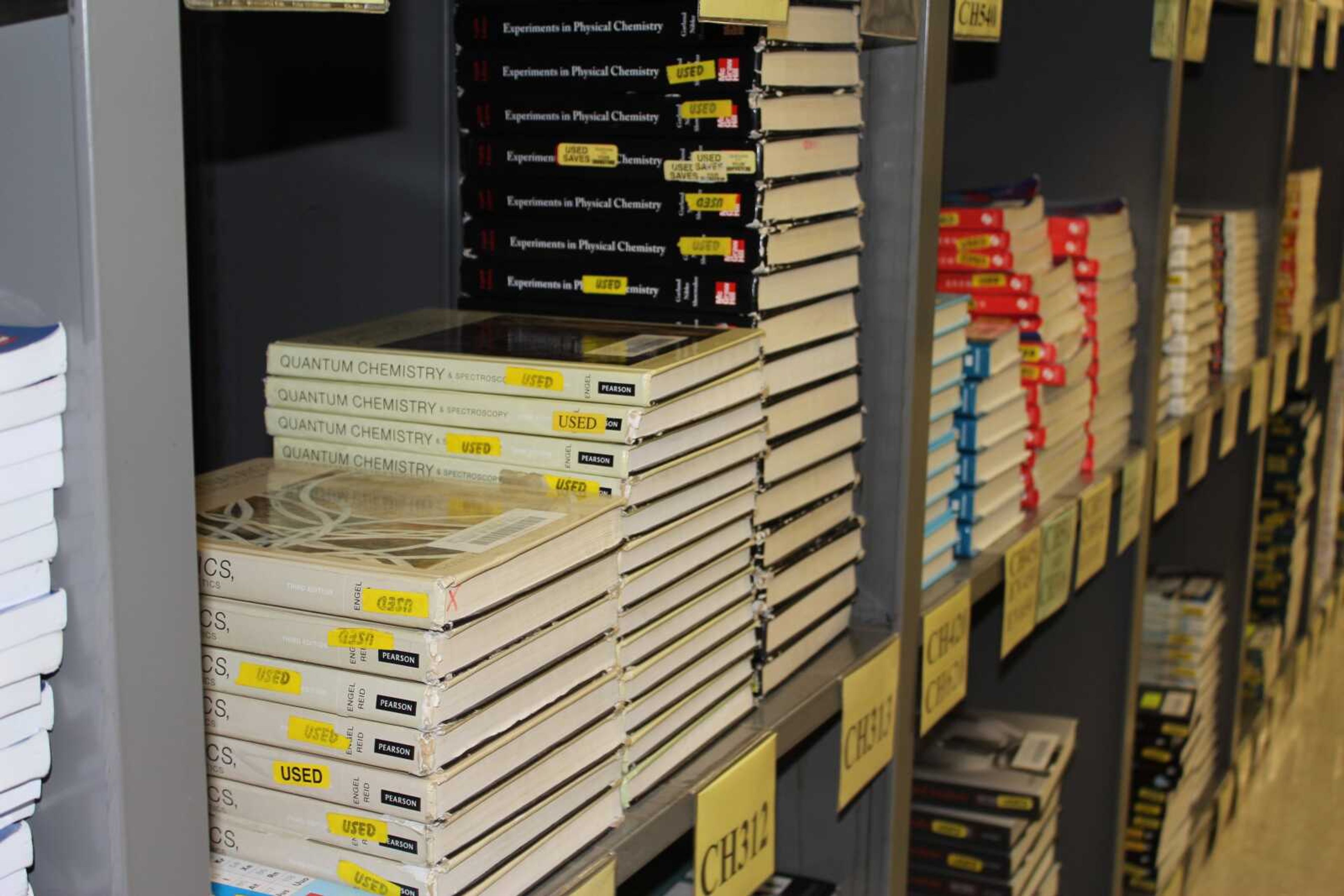SEMO students grapple with textbook prices and fees
It is no secret higher education is an expensive endeavor. According to SEMO’s website the price of one year of tuition is $9495. With the added costs of housing and meal plans, the amount jumps to nearly $20000 per year. There is another cost associated with education. Books...
It is no secret higher education is an expensive endeavor. According to SEMO’s website the price of one year of tuition is $9495. With the added costs of housing and meal plans, the amount jumps to nearly $20000 per year.
There is another cost associated with education. Books.
New textbooks can range from $10 to $316 at the bookstore.
These prices have led students and educators to seek other alternatives.
Aside from the bookstore, which is run by an outside company, eFollet, SEMO offers Textbook Rentals. Unlike many rental services, Textbook Rentals provides a flat rate service.
Jane Kurre, who manages the Textbook Rental, said SEMO has offered a textbook rental service since at least 1915.
“We’re one of the few that have a flat rate rental fee. Most [other universities] base it on the actual pricing of the book… We do a flat rate. It’s $35 per course. Not per book,” Kurre said.
Senior business administration major Amber Ortmeyer chose SEMO partially due to its low cost and flat rate rental program for textbooks.
“That’s one of the selling points when I came to the university … It’s going to be a lot cheaper of a fee because other textbooks and other colleges, it’ll be like, ‘this book was $300, plus you need the lab book with it. So, it’s going to be an additional $500.’ That can almost be a third of your tuition,” Ortmeyer said.
Vice president of student life Bruce Skinner said textbook rentals are kept inexpensive by the professors actively pursuing a cost saving initiative where courses use the same textbooks for at least two years.
“The program here works because of the support of the faculty,” Skinner said. “You could not do a rental program and have your faculty switch textbooks every semester, every year.”
Skinner also put any fears tuition dollars were going to pay for rental books students may not use to rest.
“This department is self-sufficient. So it only collects money from students that rent books. None of your tuition dollars, state appropriations, none of that feeds into Textbook Rental,” Skinner said.
For others, renting isn’t the best option.
Graduate Student Nicholas Kalinin said he prefers to own his books.
“Those books are completely relevant to the job I am going to do in the future. I would just rather keep it for a little bit more money,” Kalinin said.
Instead of paying full price, Kalinin searches for the best price online.
“I found a book for seven dollars. I’ve never been able to find a rental or a copy in the bookstore for much cheaper than I can find online,” Kalinin said.
Kalinin has been to five universities throughout his higher education. He’s seen the price of books rise and avoids corporate bookstores to find the best value.
“Every school I’ve been to has had a bookstore that’s not owned by the school. It’s been contracted out to Barnes & Noble, eFollet, and so on. These are corporations,” Kalinin said. “They have profit in mind and I’m absolutely going to go with the cheaper choice.”
Yet other students have found even cheaper ways of getting their textbooks.
Senior finance and business administration major Brett Meyer uses free PDFs and Chegg to get his textbooks.
“I’m broke and in college and Google PDFs are free,” Meyer said.
There are many ways for students to find textbooks. While Textbook Rental and the bookstore are the most convenient, used and new copies can be found across the internet and local retailers.
Students should ensure they source their books legally and safely. Free textbook PDFs can be the perfect place to find a computer virus or a lawsuit.







